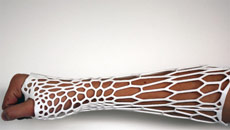Astronauts who are radiation-sensitive need to take extra care to protect their brains as they may face risks of attention deficit and slower reaction times, a study suggests.
“Astronauts should be prepared to take special precautions to protect their brains, such as wearing extra shielding or not performing space walks,” said Catherine M. Davis, a postdoctoral fellow at the Johns Hopkins University.
In lab experiments, the researchers found that rats exposed to high-energy particles - simulating conditions astronauts would face on a long-term deep space mission - show lapses in attention and slower reaction times, even when the radiation exposure is in extremely low dose ranges.
The cognitive impairments that affected a large number of the rats that they studied,but not all, appear to be linked to protein changes in the brain, contended the researchers.
Spaceships provide only limited shielding from radiation exposure when the astronauts are outside the magnetic field of earth, explained Robert D. Hienz, an associate professor of behavioral biology at the Johns Hopkins University School of Medicine.
If they take space walks or work outside their vehicles, they will be exposed to the full effects of radiation from solar flares and intergalactic cosmic rays, he said.
The experiments suggest that not everyone would be affected in the same way.
"In our radiated rats, we found that 40 to 45 percent had these attention-related deficits, while the rest were seemingly unaffected," Hienz said.
"If the same proves true in humans and we can identify those more susceptible to radiation's effects before they are harmfully exposed, we may be able to mitigate the damage," emphasised the researcher.
The study appeared in the journal Radiation Research.





